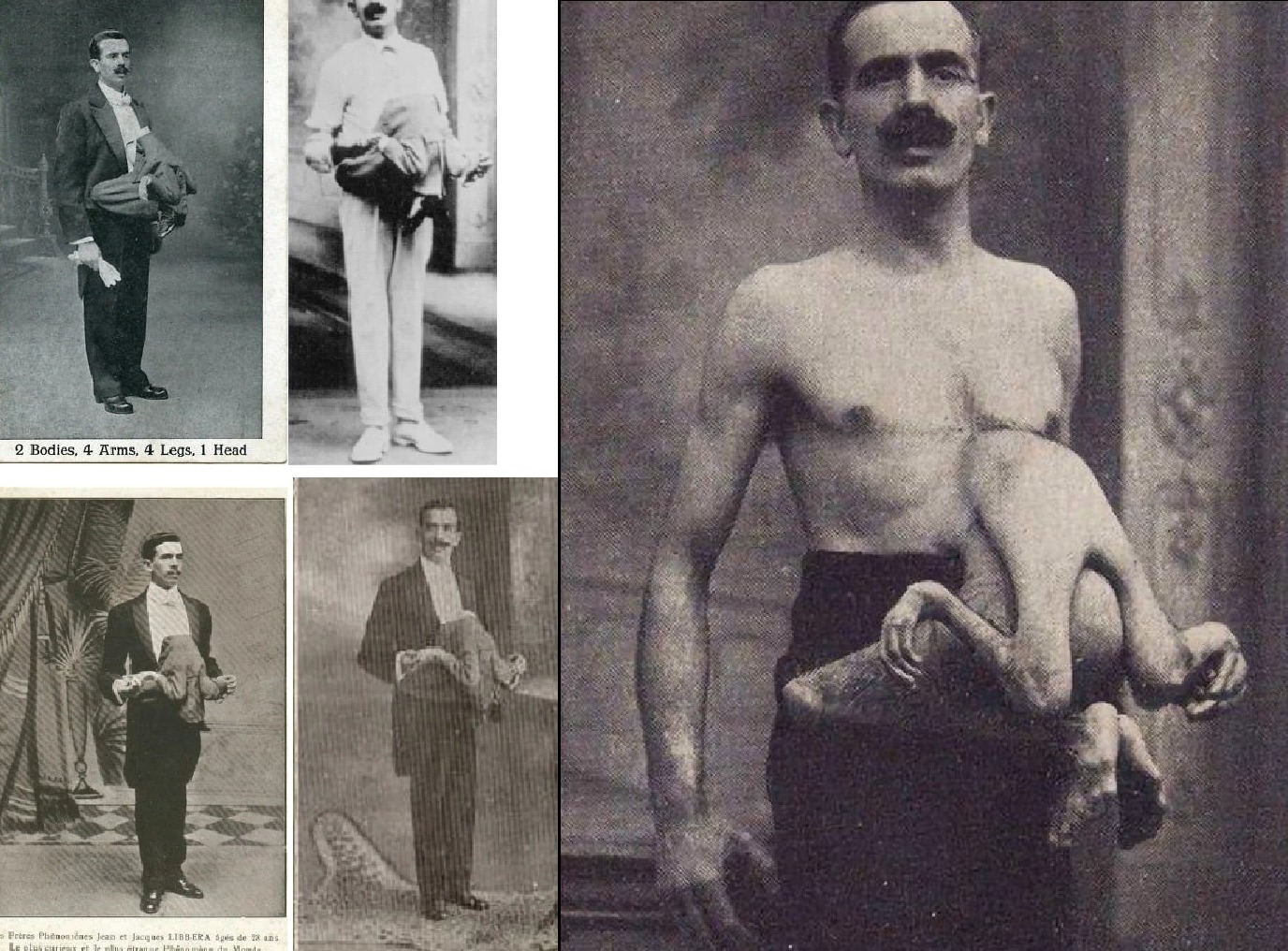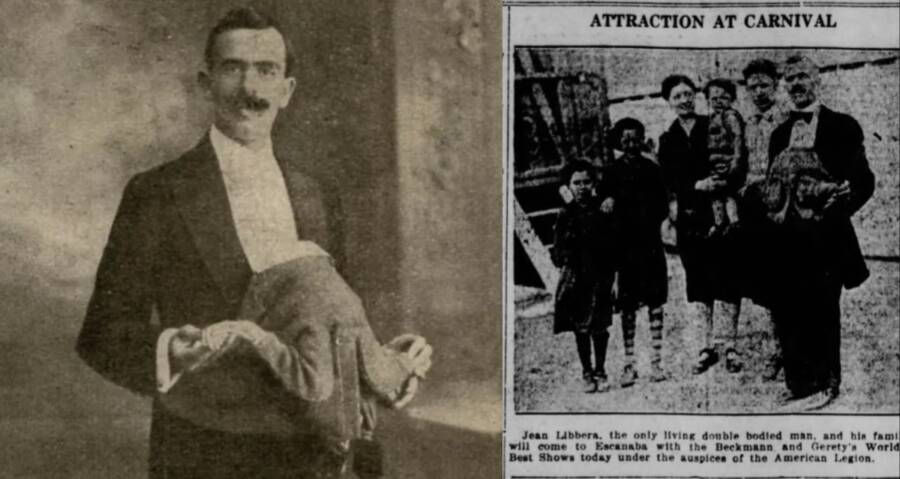Jean Libbera: The “Double-Bodied Man” Who Lived a Remarkable Life Despite His Parasitic Twin 👥🤯
In the early 20th century, a man named Jean Libbera, known as the “Double-Bodied Man,” became a famous sideshow performer. Born with a rare medical condition, Jean was conjoined to his parasitic twin, Jacques, who was attached to his chest and abdomen. This extraordinary and rare condition made Jean and Jacques inseparable, but also led to a life of intrigue and awe in the public eye.

The Extraordinary Condition of Jean and Jacques
Jean Libbera’s parasitic twin, Jacques, was not a fully formed individual. Unlike other conjoined twins, Jacques did not have a fully functional body; instead, he featured two underdeveloped arms and legs, as well as a partially developed head, which was fused to Jean’s body. This condition, known as parasitic twinning, occurs when one twin fails to fully develop and remains dependent on the other, often resulting in a situation where one twin is smaller and less developed but still shares vital organs and circulatory support from the more developed sibling.
Jacques was completely reliant on Jean for circulatory, nervous system, and metabolic support. Despite this, Jacques was not simply a “growth” on Jean’s body but, rather, a living, though unformed, entity. He was a constant presence in Jean’s life, affecting his every move, but Jean managed to navigate the challenges of living with his parasitic twin.
A Life of Performance

Despite the unusual and challenging circumstances, Jean Libbera managed to lead a relatively typical life. He and Jacques became famous as a sideshow attraction during the early 20th century, when human curiosities and anomalies were often featured in traveling circuses and exhibitions. People marveled at Jean and Jacques’ unusual condition, with many considering them a living wonder of nature.
Although the family’s life in the sideshow circuit may have been one of public display, Jean managed to keep a sense of normalcy in his personal life. He was not merely a sideshow performer but a husband and father. Incredibly, Jean married and fathered four healthy children, a testament to his resilience and ability to overcome the physical limitations imposed by his twin.
Jean’s Remarkable Resilience
Jean Libbera’s marriage and fatherhood were seen as extraordinary, given the unusual circumstances of his life. Jacques, while dependent on Jean, never seemed to hinder Jean’s ability to lead a fairly ordinary life. Jean lived well into adulthood, passing away at about 50 years old, which, for someone with his unique condition, was considered a long life.
His ability to navigate a public life as a performer and a private life as a father and husband left a lasting legacy, showing the world that individuals with medical anomalies could still live fulfilling lives.

While Jean’s story was one of unusual fame, it also served as a reminder of human resilience and adaptability. Even with the extreme medical condition of conjoined twins, Jean Libbera found love, purpose, and a family. His life provides a rare look into the strength of the human spirit in the face of physical challenges.
What Happened to Jacques?
Though Jacques was a parasitic twin, and his existence was largely dependent on Jean’s bodily systems, the exact medical details of their life together remain somewhat unclear. The condition of parasitic twinning, especially in cases like Jean and Jacques’, is incredibly rare. There is no record of Jacques ever functioning independently, and his underdeveloped form suggests that he likely never experienced any kind of independent consciousness or functionality. His attachment to Jean was such that he was an intrinsic part of Jean’s being, existing largely in the background of Jean’s daily life.
Jean’s Legacy
Jean Libbera’s story remains one of the most fascinating examples of human resilience and the complexities of medical anomalies. His ability to lead a full life, maintain family bonds, and even perform for the public while dealing with such an extraordinary condition is a reminder that human beings can adapt and thrive under extraordinary circumstances.


